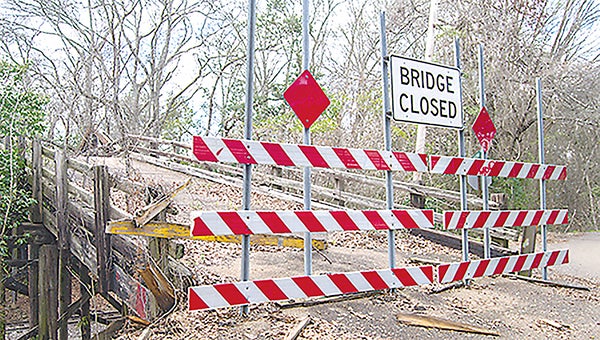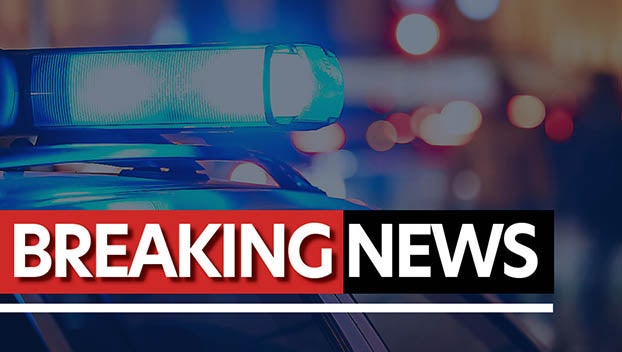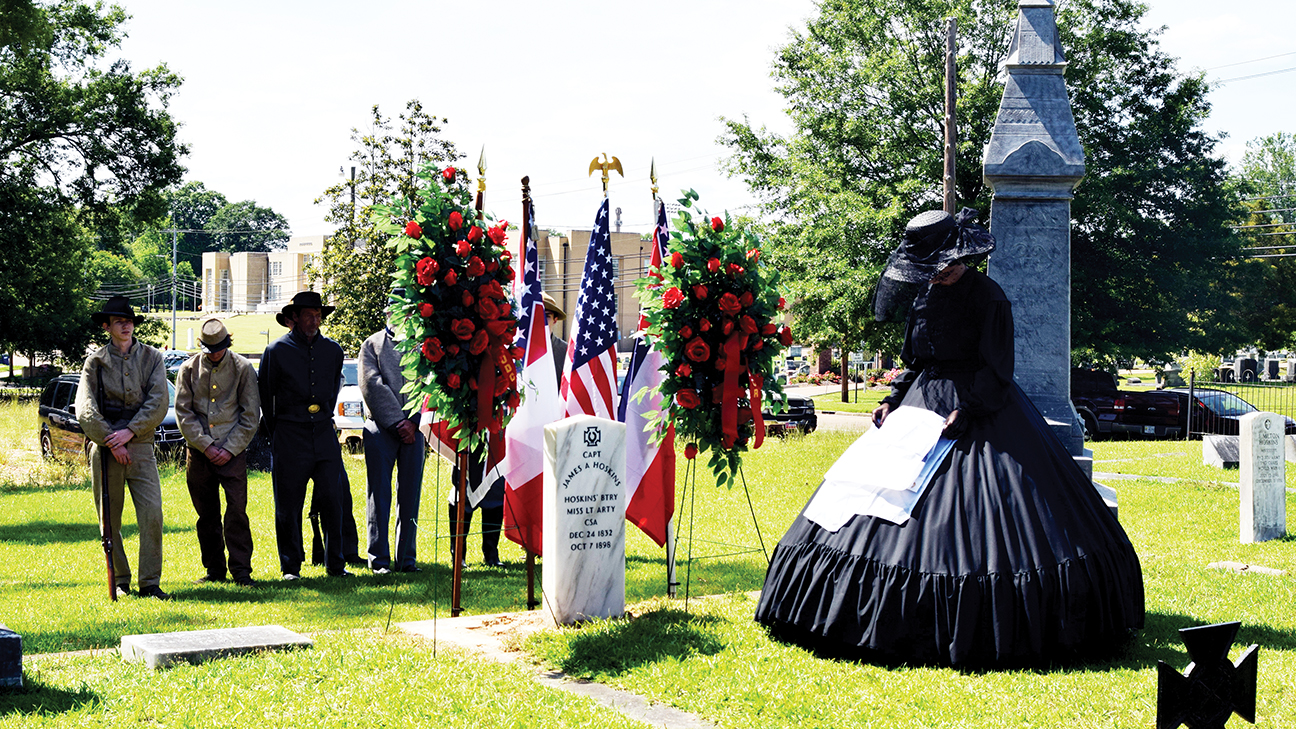Bridge funding full of potholes
Published 9:01 pm Saturday, March 18, 2017

- Daily Leader file photo/Following federal inspections completed March 2, a total of 215 bridges across 63 counties in Mississippi are now closed.
Lincoln County supervisors have been on a bumpy ride to find funding for road and bridge repair.
And at least one of the five doesn’t think the answer is going to come from a $50 million bond for bridges the Mississippi House is pushing.
Earlier this month, the Mississippi House voted 109-7 to borrow $50 million in bonds to pay the cost of improving and maintaining the state’s infrastructure of bridges. Half of that would go to the cities, and the other half to the counties. This proposal was added to SB 2939, which then returned to the Senate.
“We sent our plan to the Senate,” said Rep. Vince Mangold, R-Brookhaven. “We’re waiting to see what they do with it.”
Lincoln County District 5 Supervisor Doug Falvey appreciates the effort, but doesn’t think a bond is the way to go. He’d rather see a tax on gasoline purchases.
“$50 million sounds like a lot of money and it is a lot of money,” he said, but added that dividing it between counties and cities in 82 counties will drastically dwindle how much Lincoln County’s share will be.
He figures the five districts here will divide $300,000. “We could end up getting only one bridge,” he said.
And since it’s a loan, “we’ll spend the next few years paying it back.”
He wants to see gas prices raised a few cents a gallon to pay for road and bridge funding. “A gas tax would be income we’d see every year,” he said.
The House leadership revived a plan earlier this month to divert a 7 percent tax on items sold by online retailers to a program to repair the state’s roads and bridges.
The legislation, passed March 9, would generate between $50 million and $70 million annually for what various groups are calling badly needed work on roads and bridges, both those maintained by the state and those maintained locally. The plan also would provide $50 million in bonds to pay for repairs to subpar local bridges.
House Ways and Means Vice Chairman Trey Lamar, R-Senatobia, and Chairman Jeff Smith, R-Columbus, amended a Senate bill dealing with income dividend tax from other states to include the internet tax collections and bond language.
The legislative leadership has been struggling all session to develop a plan to spend more on transportation needs without increasing a general tax, such as on gasoline.
Mangold, at a legislative breakfast in Brookhaven last week, asked the 75 or so members of the Brookhaven-Lincoln County Chamber of Commerce, which sponsored the event, to raise their hands if they were in favor of raising gas prices and adding new taxes.
“I’ve got three hands,” Mangold said, looking around the room. “That’s the general consensus in the House.”
Falvey believes the people should get a vote. He said they should be asked if they’d be willing to pay 5 cents more a gallon for gasoline instead of paying higher property taxes. “I believe people would say ‘yes,’” he said. “I don’t think it’s ever been put to the people that way.”
Falvey said supervisors — including Jerry Wilson (District 1), Bobby Watts (District 2), Nolan Williamson (District 3) and Eddie Brown (District 4) don’t have a contingency plan other than raising property taxes.
Of the 1,037 road miles in the county, Wilson has the least with 105 miles, or just over 10 percent. Williamson has the most with 266.9 miles, or 25.7 percent. Watts has 218.6 miles (21.1 percent), Brown has 232.8 miles (22.4 percent) and Falvey has 214.1 miles (20.6 percent).
“We don’t have a plan,” Falvey said. “We can get money two ways, through a state gasoline tax or property tax. The only other option we have is to raise property tax and we don’t really want to do that. That’s the reason we were pushing so hard for the gas tax. They could say it was a users’ fee. If you use it (the roads) you’re going to pay for it.”
Falvey said he had a bridge collapse about two months ago from the weight of a garbage truck. “A school bus was schedule to cross it about two hours later,” he said.
In that case, Falvey’s crew did a temporary fix to open it back up.
In December, he had to pay $73,000 out of his own funds to fix a bridge on Newell Road.
“I had to bite the bullet and pay for it out of my funds,” he said. That means he has to cut expenses in other areas like employee salaries and road repairs.
“We’re going to wind up closing more bridges,” he said. “Patching the roads is not the answer to that. That’s just a temporary fix, but we don’t have the money to do the overlaying that we need. We’re kind of in a rock and a hard place.We’ve got to do something. This problem is not going to go away. We’re going to end up closing more bridges every year if we don’t do something about it. And borrowing money is not the way to do it.”
The action by the House ensures that the issue of more funding for transportation will remain alive for most of the rest of the session, which is scheduled to end in early April.
Following federal inspections that began in December and lasted until March 2, a total of 215 bridges across 63 counties in Mississippi are now closed, including 57 additions from 114 bridges inspected across 20 counties. An additional 15 bridges that were labeled in need of immediate attention have already been repaired and reopened. Many of the closed bridges are slated for repair as soon as possible.
“The current level of funding means the state-owned rural highway system will continue to be neglected,” said Mississippi Department of Transportation (MDOT) Executive Director Melinda McGrath. “In order to save Mississippi’s transportation system, action must be taken today. There has been no significant change in state revenue for roads and bridges since 1987. This has caused many Mississippi highways to crumble past the point of repair, and they now require complete rehabilitation.”
“MDOT maintains 30,000 highway miles, and 11,000 miles need to be repaired or replaced,” Northern Transportation Commissioner Mike Tagert said. “And, approximately 900 of the 5,700 bridges MDOT maintains need to be reconstructed, because they have restrictions that hinder commercial traffic.”
“These projects and more than 550 statewide will do more than just make people’s drives safer and more convenient,” said Central Transportation Commissioner Dick Hall. “Particularly in rural areas, these projects will connect communities and stimulate economic growth and development throughout the region.”
The Mississippi Economic Council, which is a division of the Mississippi Chamber of Commerce, said that unsafe roads and bridges hurt jobs in the state because companies aren’t likely to expand here if the roads are bad. Studies show, according to the MEC, that a good road plan can produce 7,000 jobs annually for a state.
In just three weeks of MEC’s push for participation in an online petition, more than 6,200 residents have signed forms asking state legislators to make fixing roads and bridges a priority in 2017.
According to the Mississippi Department of Transportation website, several projects planned in 2017 are to receive MDOT funding:
• Maintenance, Route 550, cost $2.4 million, planned, overlay, from Bowie Mill Road E to Hwy. 51 in Brookhaven
• Route 550, cost $200,000, Homochitto Bridge.
• Hwy. 84, cost $500,000, intersection improvements, Hwy. 84 at Auburn Road
• Hwy. 84, cost $1.5 million, more intersection improvements, Hwy. U.S. 84 at Auburn Road, 2019
• Hwy. 583, cost $100,000, reconstruction, Hwy. 583 from Hwy. 84 to Hunters Road Southeast
Lincoln County, 2018
• I-55, cost $13 million, mill and overlay, Bogue Chitto exit to Bogue Chitto River.





